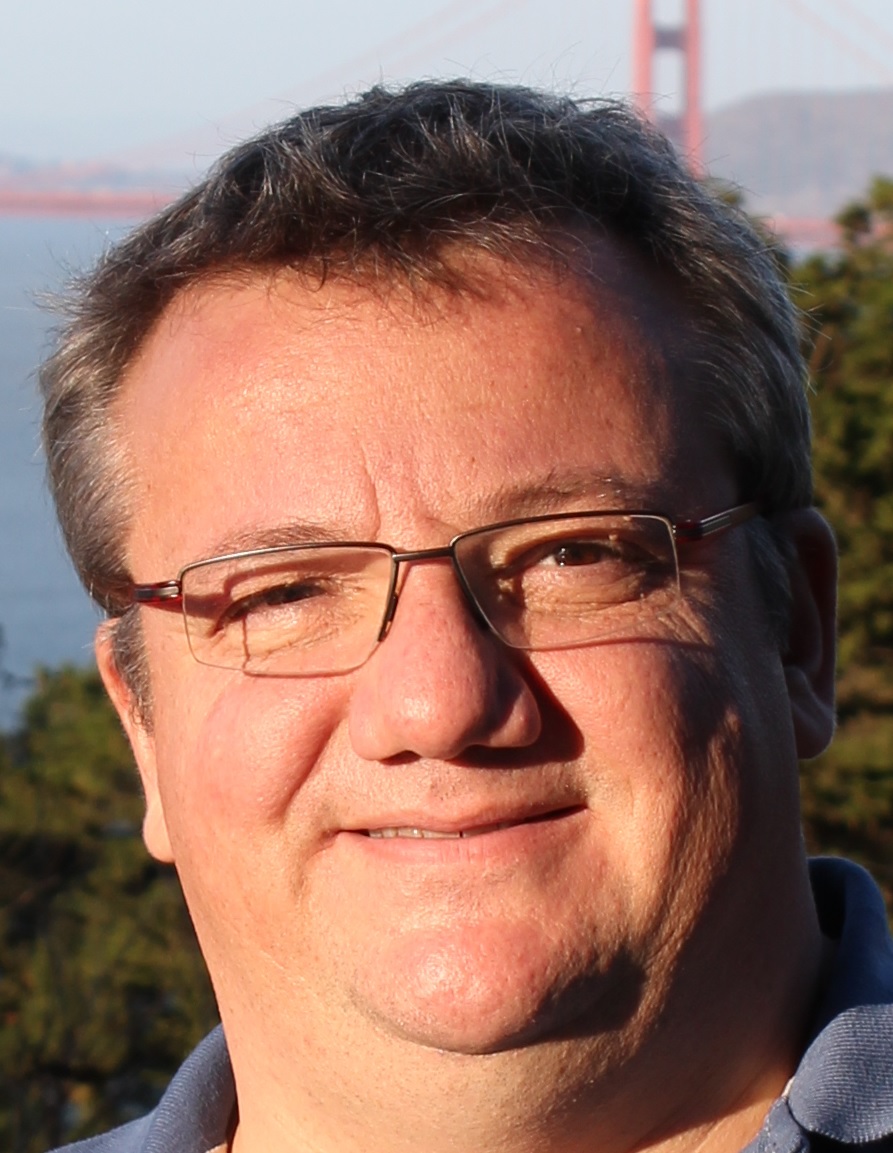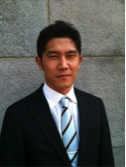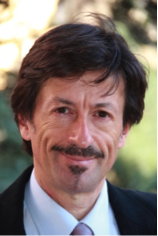Key note AM: SDN & NFV : new security challenges & expected transformation
Abstract: Beyond “softwarization” and virtualization, 5G is coming with potentially more technical and architectural disruptions which in turn, result in resilience issues. Slicing is a promise of ultimate abstraction of the system & service complexity. One may pay attention to the dependencies, responsibilities and control perimeter/authority impacting service level delivered at the end. The 5G scope can’t be wider as it combines any type of networking segments, the convergence with Information Technologies infrastructure and technologies as well as Operational Technologies coming from vertical markets. It means that the horizontal integration (End-to-End), and the vertical one across remaining layers plus the unprecedented tenant slices is becoming a pre-requisite. Assuming that we are just at the beginning of the 5G era a set of challenges will be introduced as the new needs in terms of regulation/certification, the new threats inherent to the 5G architectures such as slicing and underlying technologies. The emerging and promising Software Defined Security will be put in perspective covering various security aspects from protection towards remediation as well as other research directions in security impacting the development and deployment of SDN/NFV.
 |
Biography: Emmanuel Dotaro is the head of Network & Security labs at Thales Secure Communications & Information Systems. He is also leading the Network of Experts in communications across the Thales group. Emmanuel Dotaro received an M.S. degree in Computer Science from the University of Versailles, France in 1996. He was three years withthe Institut National des Telecommunications Performance Evaluation lab. while holding a teaching position at the University of Versailles. He joined in 1999 the Alcatel Research and Innovation lab. at Marcoussis, France. He directed the research on networking topics at Bell Labs including Packet Transport Infrastructure and Semantic and Autonomic Technologies. He joined Thales in 2009 as director of innovation for C4I systems and is now leading ICT and Security labs. He holds more than 30 papers as author or co-author as well as more than 30 patents in the ICT field. He is at the initiative, contributor or leader of various major European and national collaborative research projects. He is serving at various conference or journal Technical Committees as well as regional or national clusters of the digital ecosystem. His current research interests are network softwarization, radio and mobile networks, cloud brokering, security as a service, security policies enforcement in 5G and IoT systems, detection and remediation related cybersecurity topics.
Key note PM: Enabling determinism in converged Operational Networks
Abstract: As of today, deterministic Operational Technology (OT) networks are purpose-built, mostly proprietary, typically using serial point-to-point wires, and operated as physically separate networks, which multiplies the complexity of the physical layout and the operational (OPEX) and capital (CAPEX) expenditures, while preventing the agile reuse of the compute and network resources. Bringing determinism in Information Technology (IT) networks will enable the emulation of those legacy serial wires over IT fabrics and the convergence of mission-specific OT networks onto IP. The IT/OT convergence onto Deterministic Networks will in turn enable new process optimization by introducing IT capabilities, such as the Big Data and the network functions virtualization (NFV), improving OT processes while further reducing the associated OPEX. The computation of deterministic paths cannot be solved in a fully distributed fashion, and for a number of reasons, may not be fully centralized either. It takes Fog and Mobile Edge Computing to obtain the fundamental capability that is required to enable the IT/OT convergence.
 |
Biography: Pascal Thubert has been actively involved in research, development and standards efforts on Internet mobility and wireless technologies since joining Cisco in Y2K. He currently works at Cisco’s Chief Technology and Architecture office, where he focuses on products and standards in the general context of IPv6, wireless, and the Internet of Things. He co-chairs 6TiSCH, the IETF Working Group focusing on IPv6 over the 802.15.4 TSCH deterministic MAC, and LPWAN, that applies IETF protocols over low power wide area networking technologies. Earlier, he specialized in IPv6 as applied to mobility and wireless devices and developed routers and switches microcode in Cisco’s core IPv6 product development group. In parallel with his R&D missions, he has authored multiple IETF RFCs and draft standards dealing with IPv6, mobility and the Internet of Things.
Panelist: Evolutional Technologies & Ecosystems for 5G and Beyond
Kei Sakaguchi (Tokyo Institute of Technology), Emmanuel Dotaro (Thales Secure Communications & Information Systems), Pascal Thubert (Cisco), Sergio Barbarossa (Sapienza University of Rome, Italy)
 |
Biography: Kei Sakaguchi received the M.E. degree in Information Processing from Tokyo Institute Technology in 1998, and the Ph.D degree in Electrical & Electronics Engineering from Tokyo Institute Technology in 2006. Currently, he is working at Fraunhofer HHI in Germany as a Senior Scientist and at the same time he is an Associate Professor at Tokyo Institute of Technology in Japan. He received the Outstanding Paper Awards from SDR Forum and IEICE in 2004 and 2005 respectively, and three Best Paper Awards from IEICE communication society in 2012, 2013, and 2015. He also received the Tutorial Paper Award from IEICE communication society in 2006. He served as a TPC co-chair in the IEEE 5G Summit in 2016, a General co-chair in the IEEE WDN-5G in 2017, and a Industrial Workshop co-chair in the IEEE Globecom in 2017. His current research interests are in 5G cellular networks, millimeter-wave communications, and wireless energy transmission. He is a member of IEICE and IEEE.
 |
Biography: Emmanuel Dotaro is the head of Network & Security labs at Thales Secure Communications & Information Systems. He is also leading the Network of Experts in communications across the Thales group. Emmanuel Dotaro received an M.S. degree in Computer Science from the University of Versailles, France in 1996. He was three years withthe Institut National des Telecommunications Performance Evaluation lab. while holding a teaching position at the University of Versailles. He joined in 1999 the Alcatel Research and Innovation lab. at Marcoussis, France. He directed the research on networking topics at Bell Labs including Packet Transport Infrastructure and Semantic and Autonomic Technologies. He joined Thales in 2009 as director of innovation for C4I systems and is now leading ICT and Security labs. He holds more than 30 papers as author or co-author as well as more than 30 patents in the ICT field. He is at the initiative, contributor or leader of various major European and national collaborative research projects. He is serving at various conference or journal Technical Committees as well as regional or national clusters of the digital ecosystem. His current research interests are network softwarization, radio and mobile networks, cloud brokering, security as a service, security policies enforcement in 5G and IoT systems, detection and remediation related cybersecurity topics.
 |
Biography: Pascal Thubert has been actively involved in research, development and standards efforts on Internet mobility and wireless technologies since joining Cisco in Y2K. He currently works at Cisco’s Chief Technology and Architecture office, where he focuses on products and standards in the general context of IPv6, wireless, and the Internet of Things. He co-chairs 6TiSCH, the IETF Working Group focusing on IPv6 over the 802.15.4 TSCH deterministic MAC, and LPWAN, that applies IETF protocols over low power wide area networking technologies. Earlier, he specialized in IPv6 as applied to mobility and wireless devices and developed routers and switches microcode in Cisco’s core IPv6 product development group. In parallel with his R&D missions, he has authored multiple IETF RFCs and draft standards dealing with IPv6, mobility and the Internet of Things.
 |
Biography: Sergio Barbarossa received his MS and Ph.D. EE degree from the Sapienza University of Rome, where he is now a Full Professor. He has held visiting positions at the Environmental Research Institute of Michigan (’88), Univ. of Virginia (’95, ‘97), and Univ. of Minnesota (’99). He is an IEEE Fellow, EURASIP Fellow, and he has been an IEEE Distinguished Lecturer. He received the IEEE Best Paper Awards from the IEEE Signal Processing Society for the years 2000 and 2014. He received the Technical Achievements Award from the European Association for Signal Processing (EURASIP). He has written a book entitled Multiantenna Wireless Communication Systems. He is currently a member of the editorial board of the IEEE Transactions on Signal and Information Processing over Networks. He has been the scientific coordinator of several EU projects on wireless sensor networks, small cell networks, and distributed mobile cloud computing. He is now the technical manager of the H2020 Europe/Japan project 5G-Mi-Edge. His current research interests are in the area of graph signal processing, distributed optimization, millimeter wave communications, mobile edge computing and machine learning.
 |
Biography: Thomas Haustein received the Dr. -Ing. (Ph.D.) degree in mobile communications from the University of Technology Berlin, Germany, in 2006. In 1997, he was with the Fraunhofer Institute for Telecommunications, Heinrich Hertz Institute (HHI), Berlin, where he worked on wireless infrared systems and radio communications with multiple antennas and OFDM. He focused on real -time algorithms for baseband processing and advanced multiuser resource allocation. From 2006 till 2008, he was with Nokia Siemens Networks, where he conducted research for 4G. Since 2009 he is heading the Wireless Communications Department at Fraunhofer HHI focussing on 5G and Industrial Wireless and related standardization. He was coordinating the Europe/Japan project MiWEBA and is currently coordinating the European team of the H2020 Europe/Japan project 5G -MiEdge.